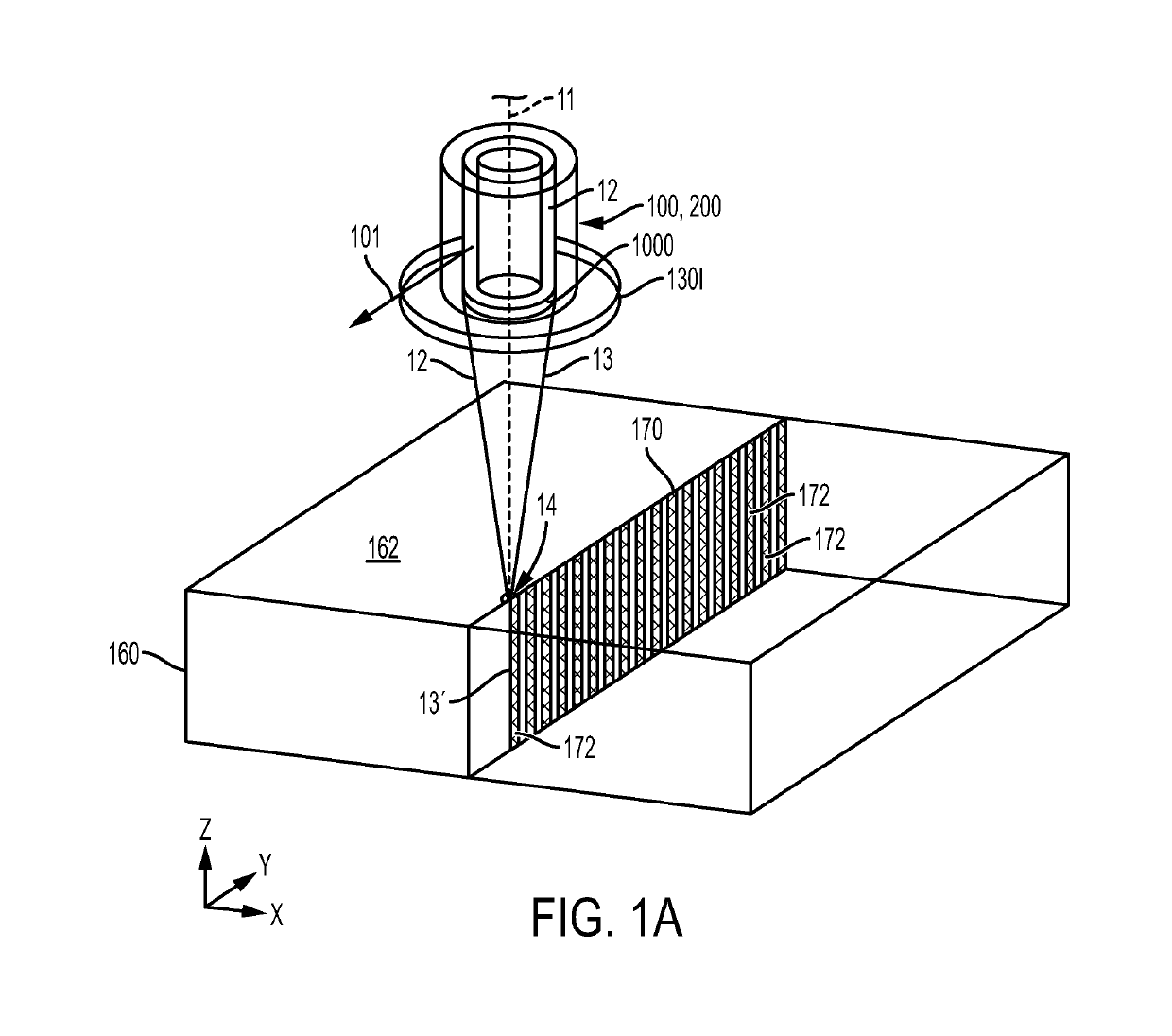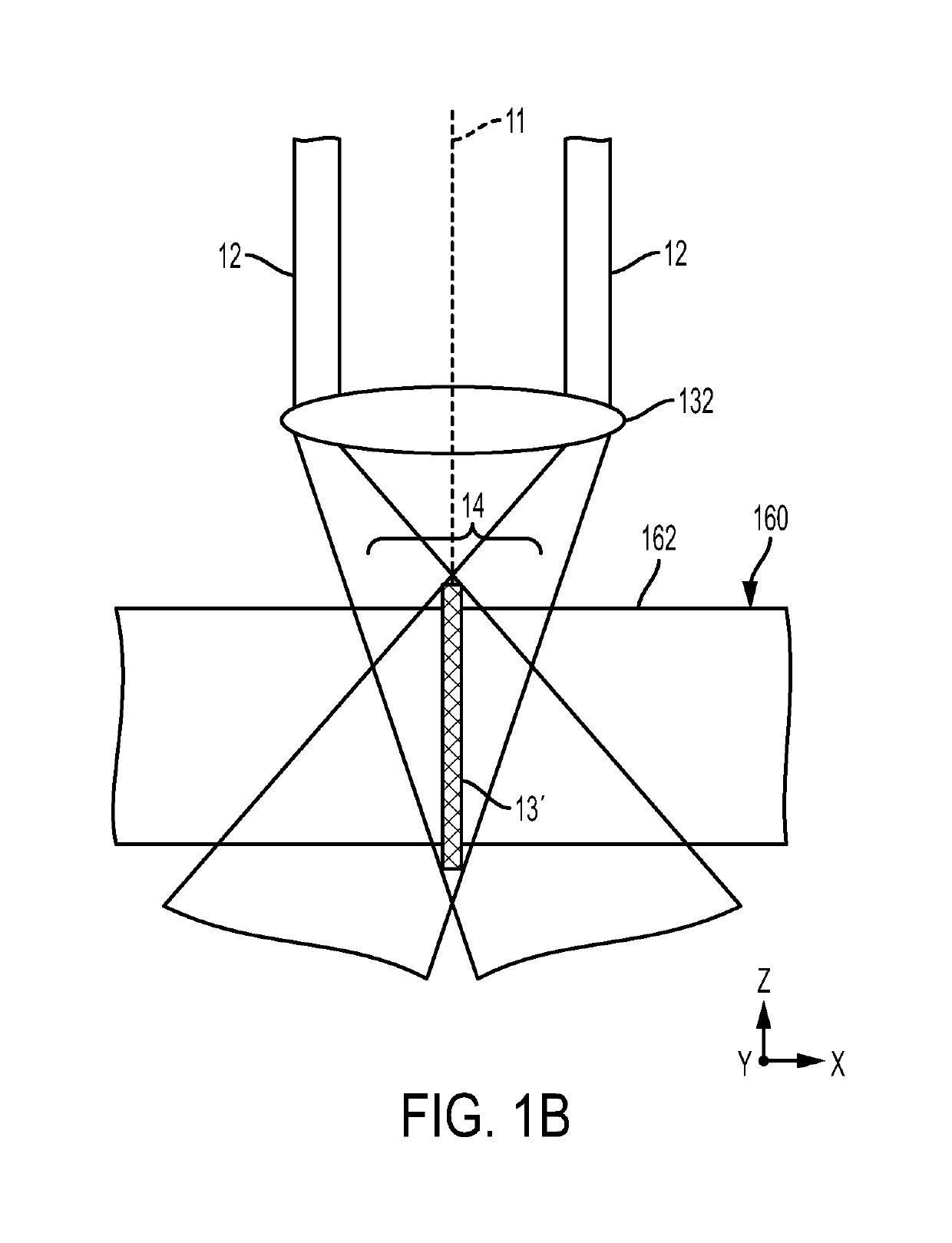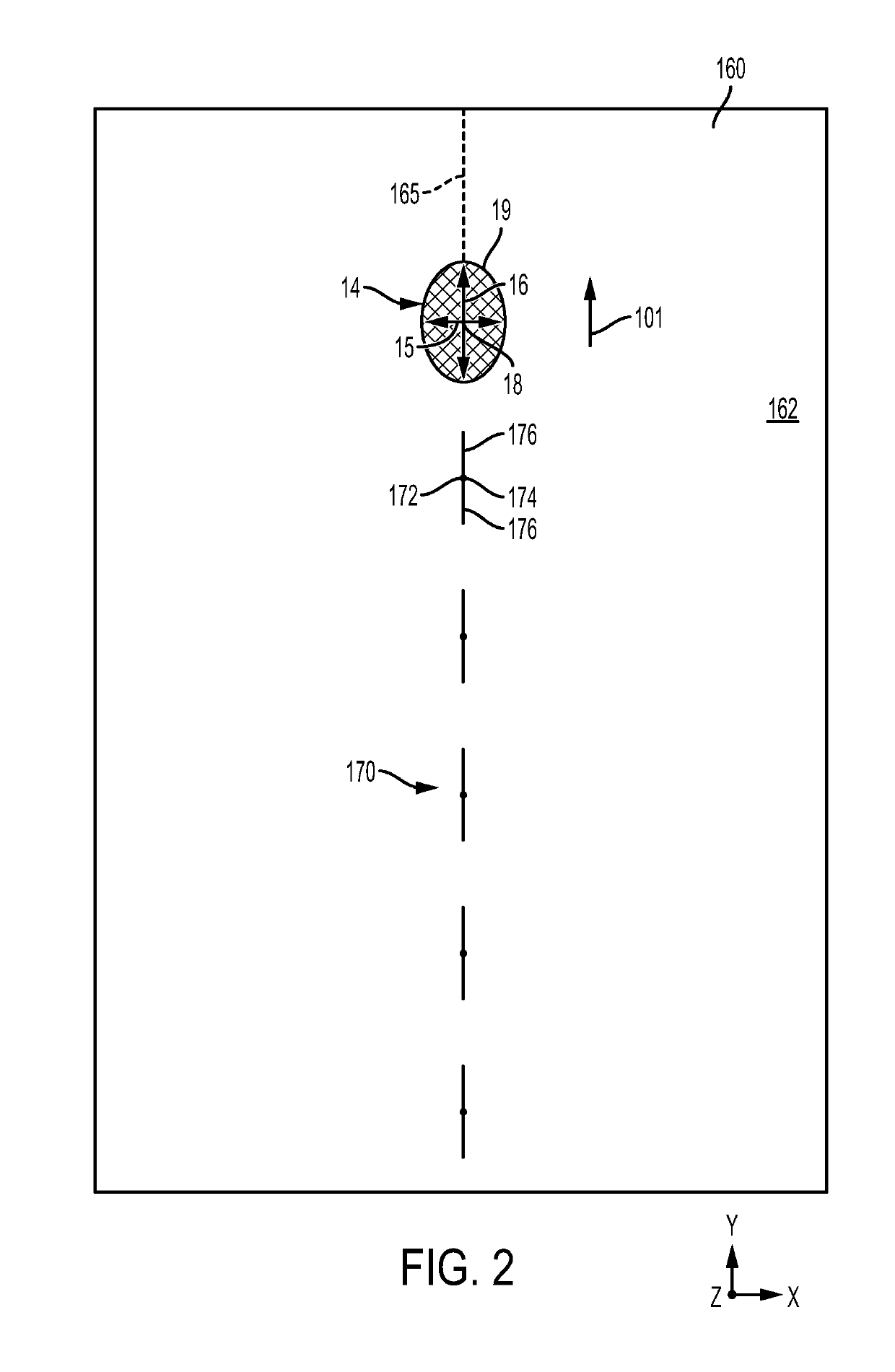Optical fibers and optical systems comprising the same
a technology of optical fibers and optical systems, applied in the field of optical fibers, can solve the problems of large amount of bessel beams generated by optical systems that are bulky in free space, and low alignment tolerance and high cost, and achieves low alignment tolerance, high cost, and flexible
- Summary
- Abstract
- Description
- Claims
- Application Information
AI Technical Summary
Benefits of technology
Problems solved by technology
Method used
Image
Examples
examples
[0327]The embodiments described herein will be further clarified by the following examples.
[0328]A summary of radii and relative refractive indices for five examples (Examples 1-5) of the optical fiber 100 depicted in FIGS. 1A and 5A-8A are shown in Table 1A below.
TABLE 1AExample 1Example 2Example 3Example 4Example 5ΔCH %−26%−26%−26%−26%−26%ΔAC %0.12% 0.2%0.34% 0.5% 1%ΔLIT %−0.6%−0.5%−0.4%−0.4% 0%R0 (μm)1020152530R1 (μm)1522.5203240R2 (μm)2034253240R3 (μm)2842.5324040R4 (μm)125807583.373.5Taper ratio0.50.7810.5330.7500.85r1 (μm)5.78.37.215.724.6r2 (μm)8.822.210.915.724.6r3 (μm)13.230.215.424.624.6r4 (μm)62.562.540.062.562.5
[0329]As shown in Table 1A, the relative refractive index ΔCH% for the channel 114 was −26% for Examples 1-5. The relative refractive index ΔAC% for the first annular core region 113 ranged from 0.12% to 1% and the relative refractive index ΔLIT% for the first low-index trench 124 ranged from 0% to −0.6%. The radius R0 ranged from 10 μm to 30 μm; the radius R1...
PUM
| Property | Measurement | Unit |
|---|---|---|
| Energy | aaaaa | aaaaa |
| Fraction | aaaaa | aaaaa |
| Fraction | aaaaa | aaaaa |
Abstract
Description
Claims
Application Information
 Login to View More
Login to View More - R&D
- Intellectual Property
- Life Sciences
- Materials
- Tech Scout
- Unparalleled Data Quality
- Higher Quality Content
- 60% Fewer Hallucinations
Browse by: Latest US Patents, China's latest patents, Technical Efficacy Thesaurus, Application Domain, Technology Topic, Popular Technical Reports.
© 2025 PatSnap. All rights reserved.Legal|Privacy policy|Modern Slavery Act Transparency Statement|Sitemap|About US| Contact US: help@patsnap.com



